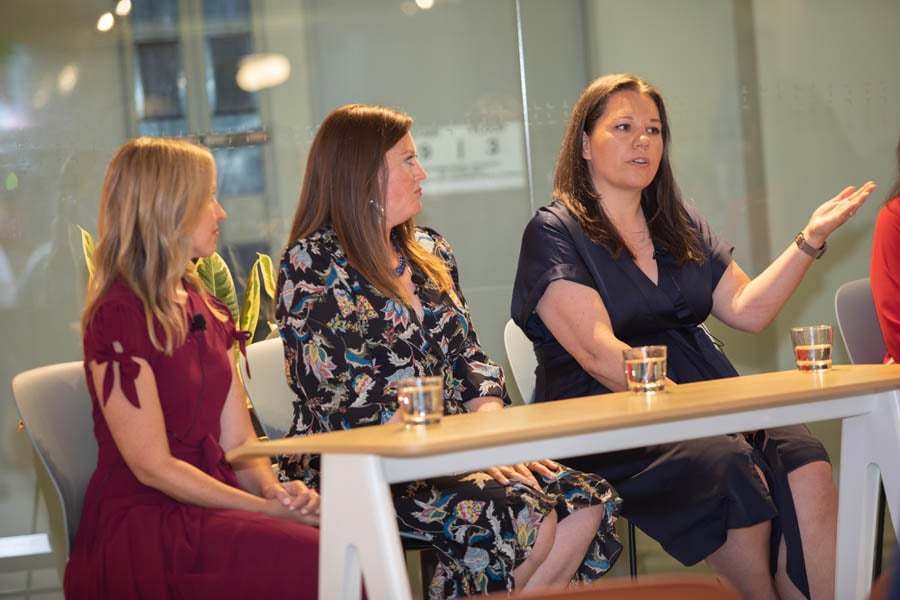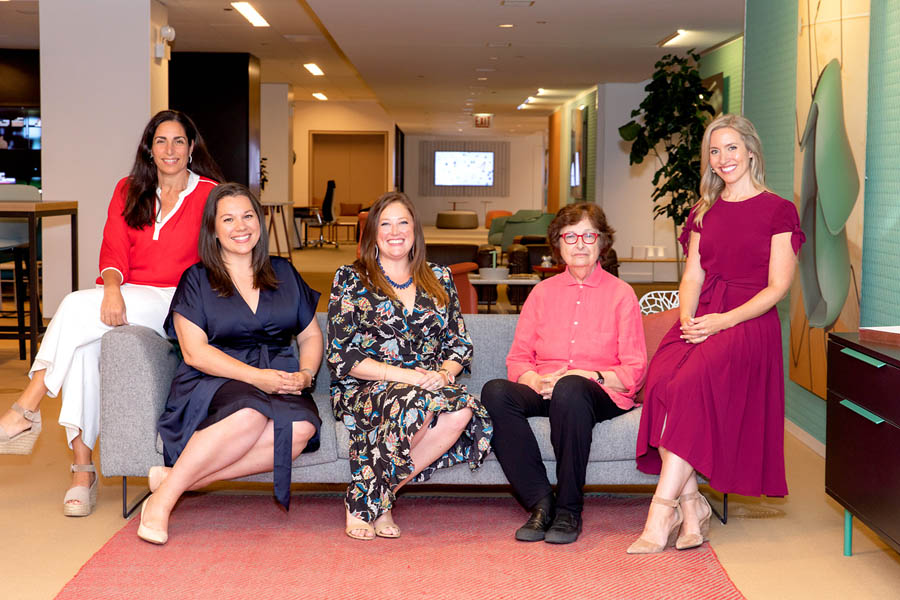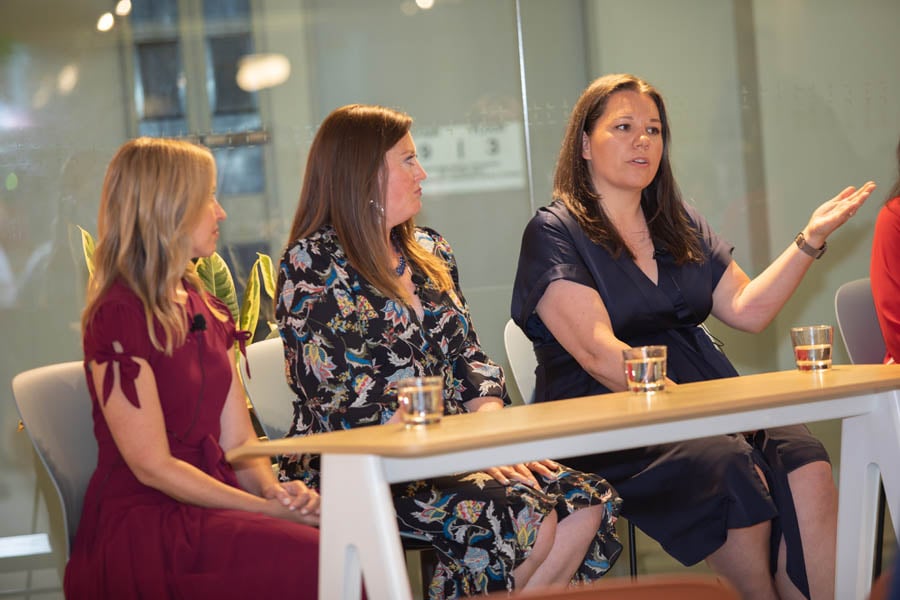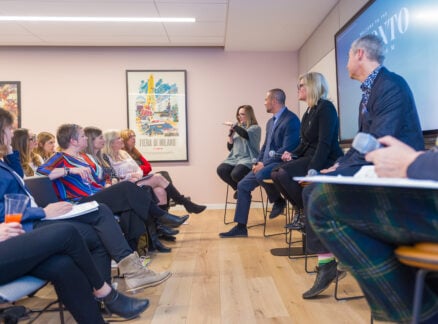
October 10, 2019
In the Digital Age, Successful Offices Are Those That Understand Employees as People
A recent event held at Haworth’s Chicago showroom gathered workplace specialists to discuss workplace design that focuses on people rather than job titles.

“Work has become very exciting;” remarked moderator Susan Szenasy, Metropolis’ director of design innovation, as she introduced the panel of facility design experts at the Haworth Chicago showroom last month. “The way we work is changing every two years, every year, every five minutes.”
Realizing that human capital is the one constant in these shifting sands of the digital age, organizations have begun to embrace and nurture employees as individuals with unique skillsets. “Work is a celebration of human qualities,” suggested Haworth Senior Workplace Design Strategist Anjell Karibian. “No one knows how AI is going to interface with humans; the soft sides of human interaction are going to become more important.”
Gensler Interior Designer Sarah Adams emphasized the importance of vast social spaces for younger associates to learn from one another. “We’re bridging the gap from higher education to the workplace,” explained Adams, who relies on data to educate clients on the importance of providing an array of working environments for a new generation of talent. The choice of when and where to work optimizes employees’ ability to create “moments of impact,” added Nina Charnotskaia, senior director, workplace strategy, CBRE.
“Our spaces revolve around our associates and our culture,” offered Ulta Beauty’s Manager of Facilities and Office Space Planning, Jamie McClaren. For instance, a recent revamp of Ulta headquarters introduced collaborative spaces, daylight wells, and refrigerators accessible throughout the facility. The Bollingbrook-based company also offers associates the option to work out of a remote office downtown in order to avoid traffic or severe weather.

Despite such generous amenities and accommodations, many companies are realizing that the increasing pace of turnover is reality—in fact, it represents a different approach to work: “Work is self-gratification, purpose; it’s more about ‘What can I offer and how can I grow?’,” explained Karibian. Employees tend to stick around as long as they feel that purpose and fit. Organizations that accept that, and invest time nourishing individuals find that they can enrich teams even after their departure, pointed out Charnotskaia. “Think of the person [leaving] as extending the network of the team.”
Viewing employees as people with unique skill sets rather than job titles leads teams to continuously evolve their missions. Office furniture manufacturers can play a role in that, helping organizations update their spaces to match their changing goals. “Technology is the link,” posited Karibian—as furniture sensors become ubiquitous, they enable low-visibility, post-occupancy evaluations and dashboards, helping facility managers ensure that the workplace keeps up with the evolving needs of employees.
Panelists agreed that the key to employee engagement in the digital age is a workspace that authentically reflects community culture and offers the opportunity for individuals to flourish. “Its an ever-evolving conversation of educating each other,” concluded McClaren.
You may also enjoy “The Office Can Offer Authenticity in a Virtual World.”
Would you like to comment on this article? Send your thoughts to: [email protected]





